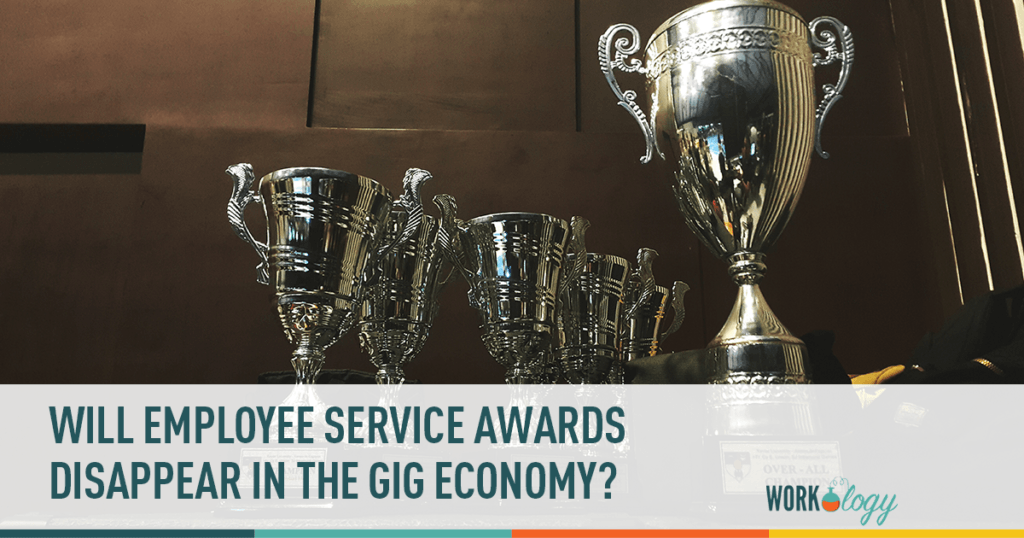If you’ve held a job for any length of time, you may have worked for a business that rewards staff for years of dedication. Given the changes we are witnessing in the workplace and the nature of employment, will many of you who have worked for your firm for more than five or ten years still have such an award?
Many Companies Have Service Programs
According to a survey by SHRM and Globoforce 74% of companies report that they still have service anniversary programs. Companies hope that these programs engage employees, increase employee satisfaction, make employees happy, renew employee commitment and more. Unfortunately in this group there is a mixed bag of results. The study said “…only 22 percent of companies reported having an excellent program, 47 percent rated it as good and a full 31 percent rated their program as fair or poor.” The organizations that have these programs say they could be improved and be more effective if:
- The employees were given a more inspirational experience
- Upper management participated more
- Better awards were used
- More money was put into the program
- There was a more modern program
- Something that could be shared with family
And more. I think there is another reason service award programs are not effective.
Do People Stay 5 Years?
I think service awards are becoming increasingly ineffective in the goals of increasing engagement, increasing satisfaction and making employees happy because fewer and fewer people are staying long enough to earn a service award. According to the Bureau of Labor Statistics the average job tenure in the United States in 2014 is 4.6 years. Only about 29% of workers have job tenure of 10 years or more. In fact the BLS says:
“Median employee tenure was generally higher among older workers than younger ones. For example, the median tenure of workers ages 55 to 64 (10.4 years) was more than three times that of workers ages 25 to 34 years (3.0 years). A larger proportion of older workers than younger workers had 10 years or more of tenure. Among workers ages 60 to 64, 58 percent were employed for at least 10 years with their current employer in January 2014, compared with only 12 percent of those ages 30 to 34.”
The Gig Economy Doesn’t Produce Tenure
We will observe an increasing irrelevance and efficacy of service awards as we transition to a gig economy model. Workers will travel across companies in search of the flexibility and experience they seek.
Therefore, I advise you to reconsider that concept if you are placing a big stake on the success of your service award program.







